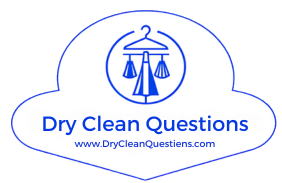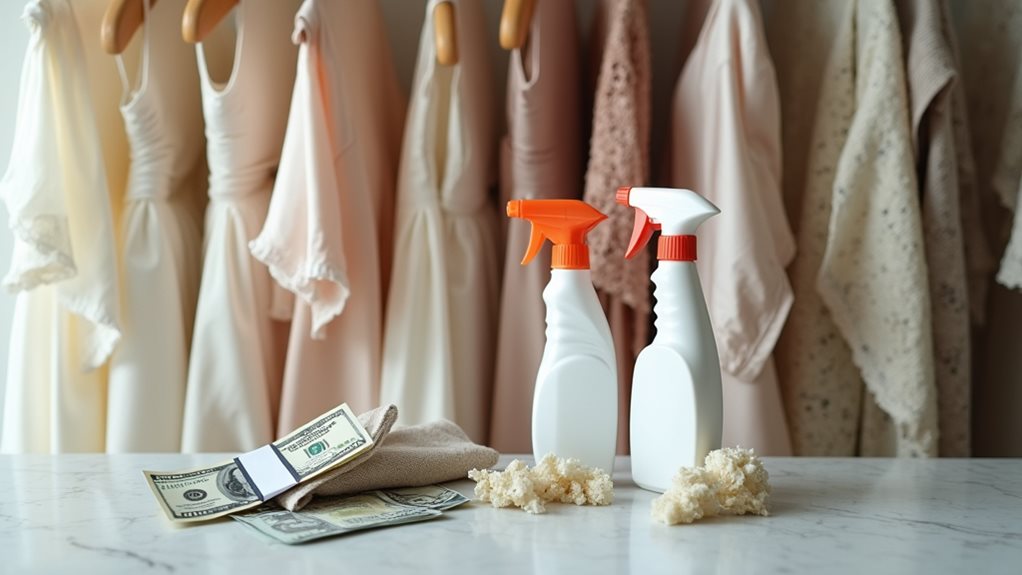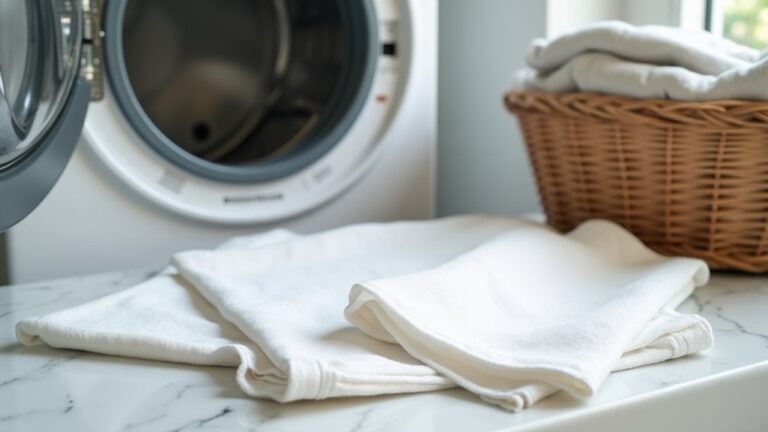Dry cleaning is absolutely worth it for your silk blouses, wool suits, and formal wear that would shrink or lose their shape in water, but you’re probably wasting money on everyday cotton and synthetic pieces that actually perform better with gentle home washing. I learned this the hard way after spending hundreds on unnecessary dry cleaning for basic items. The key is knowing which fabrics truly need professional care versus those that don’t, and understanding how to evaluate local cleaners for quality and fair pricing will help you make smarter wardrobe investments.
What Is Dry Cleaning and How Does It Work?
When I first discovered dry cleaning in college, I honestly thought it was some kind of fancy marketing gimmick – like, how could something be “dry” but still get clean? 😅
Turns out, dry cleaning is actually a sophisticated cleaning process that uses chemical solvents instead of water and soap to remove dirt, stains, and odors from your clothes, and the “dry” part simply means there’s no water involved in the actual cleaning stage.
A professional dry cleaning service uses perchloroethylene as their go-to solvent, which penetrates deep into fabric fibers without the harsh chemicals that water-based washing can create.
This gentle approach works wonders on delicate fabrics such as silk, wool, and structured garments that would otherwise shrink or lose their shape.
The process is particularly effective at removing oils and grease that water-based cleaning simply cannot handle, making it essential for certain types of stains and fabric care.
Benefits of Professional Dry Cleaning Services
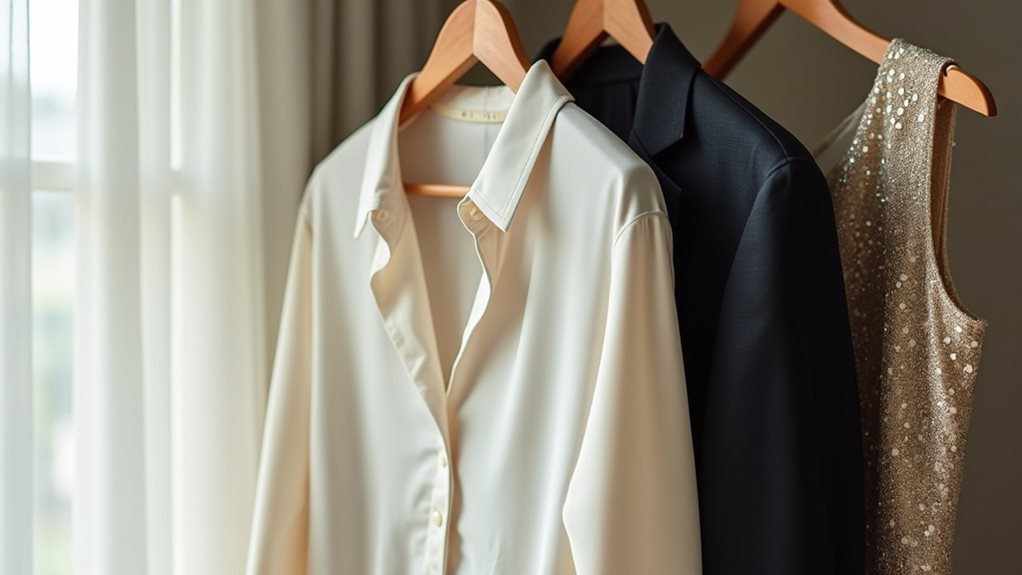
Although I used to roll my eyes at the thought of paying someone else to clean my clothes, I’ve come to realize that professional dry cleaning services offer some genuinely compelling benefits that go way beyond what your home washing machine can achieve.
The most obvious advantage is how expertly they handle delicate fabrics – those silk blouses and wool suits that make you break into a cold sweat when you consider tossing them in your washer.
Professional dry cleaners expertly handle delicate fabrics like silk and wool that would make you nervous to wash at home.
Professional cleaning techniques can tackle stubborn stains and odors that would laugh in the face of your regular detergent, while modern methods use gentler chemicals that actually preserve your garments’ integrity.
Plus, the benefits of dry cleaning extend to convenience, with many places offering pickup and delivery services that’ll save your sanity.
Unlike water-based washing, dry cleaning uses chemical solvents to lift dirt and stains without causing the shrinkage, color bleeding, or fabric damage that can ruin your favorite garments.
When You Should Choose Dry Cleaning Over Home Washing

Knowing when to reach for your phone to call the dry cleaner instead of tossing something in your washer can feel like decoding ancient hieroglyphics.
But I’ve learned through some painful (and expensive) trial and error that certain situations practically scream for professional intervention.
Here’s when dry cleaning becomes your clothes’ best friend:
- Delicate fabrics like silk, cashmere, or wool need gentle handling that your washing machine simply can’t provide.
- Tough stains that survived multiple home washing attempts require specialized solvents only professionals have.
- “Dry-clean only” labels aren’t suggestions—they’re lifelines for your garment’s survival.
- Formal wear with intricate beading, structure, or vintage value deserves expert care.
Dry cleaning uses chemical solvents instead of water to safely remove dirt and stains while preserving the fabric’s integrity and preventing the damage that conventional washing methods can cause.
Trust me, getting your clothes cleaned properly the first time beats replacing ruined favorites!
Fabrics That Don’t Actually Need Dry Cleaning
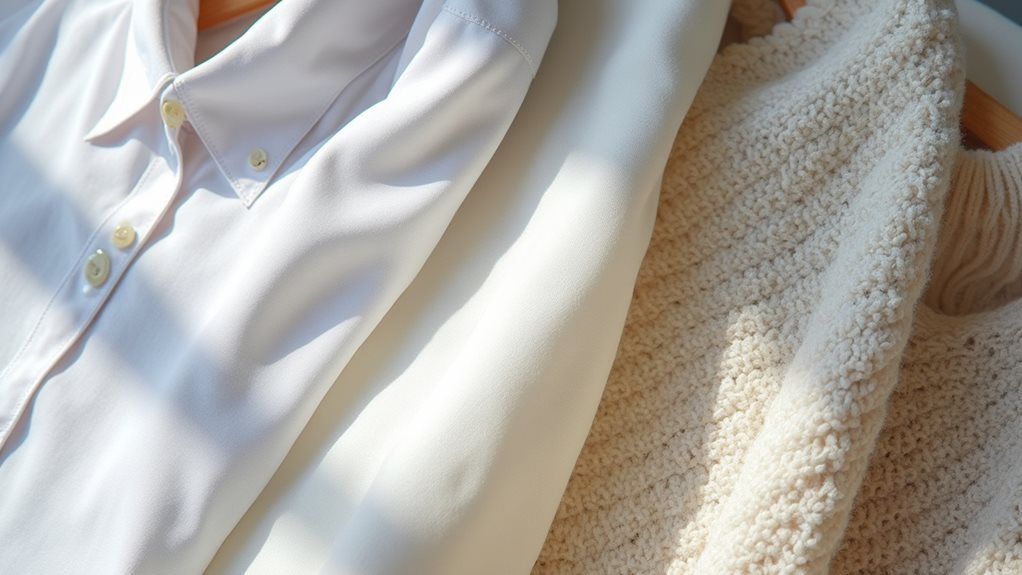
You might be surprised to learn that many fabrics sporting those intimidating “dry clean only” labels can actually handle a gentle wash cycle at home, saving you both money and those awkward trips to pick up forgotten garments three weeks later 😅.
Cotton and linen, despite their sometimes fussy labels, are actually quite forgiving when you treat them with cold water and a delicate touch, much like that favorite cotton dress I’ve been home-washing for years despite its stern care instructions.
Even synthetic fabrics like polyester, which seem designed to withstand nuclear fallout, rarely need the specialized treatment that dry cleaning provides, making professional cleaning more of a luxury than a necessity for these resilient materials.
Most cotton items like t-shirts, jeans, and casual wear can be machine washed in cold or warm water, making them one of the most low-maintenance fabrics that don’t require the expense of professional dry cleaning services.
Cotton and Linen Care
When I first started working in an office, I dutifully hauled my cotton dress shirts to the dry cleaner every week, convinced that crisp, professional appearance demanded professional care—until my penny-pinching roommate showed me her perfectly pressed shirts fresh from our apartment’s washing machine.
Here’s what I learned about proper cotton and linen care:
- Check the care label first – most cotton and linen pieces explicitly say “machine washable”
- Use cold water washing methods to prevent shrinkage while maintaining fabric integrity
- Hang dry whenever possible to avoid tumble dryer damage and extend garment lifespan
- Embrace the softening effect – frequent washing actually improves these fabrics’ comfort over time
However, cotton blends and structured garments may still require professional cleaning to maintain their shape and appearance.
You’ll save serious money while discovering that home laundering often produces better results than expensive dry cleaning services.
Synthetic Fabric Options
Although manufacturers love slapping “dry clean only” labels on perfectly washable synthetic garments, I discovered this expensive myth during my first apartment hunt, when I accidentally threw a polyester blazer into the washing machine and watched in amazement as it emerged looking better than it ever had from the cleaner’s plastic wrap.
Synthetic fabrics like polyester, nylon, and spandex are actually designed to resist wrinkles and stains, making machine washing not only possible but preferable.
These materials don’t absorb odors like natural fibers do, and their durability means regular cleaning helps maintain their appearance without professional intervention.
Unless you’re dealing with structured suits or delicate embellishments, dry cleaning is worth questioning when synthetic fabrics can handle cold water cycles perfectly fine.
Additionally, avoiding unnecessary dry cleaning helps you sidestep potential exposure to PERC residues that can remain on freshly cleaned garments.
Cost Factors That Affect Dry Cleaning Prices
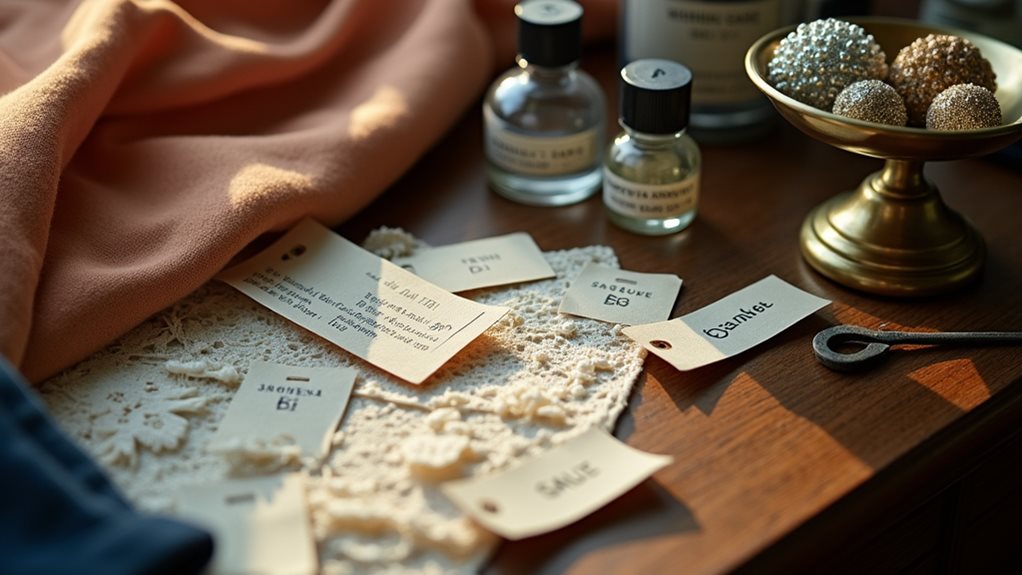
Several key factors work together to determine what you’ll pay at the dry cleaner, and understanding these can help you budget more effectively while avoiding those awkward moments when you’re standing at the counter, wallet in hand, wondering why your favorite blazer costs twice as much to clean as your everyday work shirt.
Ever wondered why that designer dress costs more to clean than your entire weekly grocery budget? Understanding dry cleaning pricing helps avoid checkout shock.
Here’s what drives your dry cleaning cost:
- Garment complexity – Suits and formal wear demand specialized handling, naturally bumping up prices.
- Fabric type – Silk and cashmere require delicate treatment compared to sturdy cotton or polyester.
- Additional services – Pressing, folding, and stain removal add to your final bill.
- Geographic location – Urban dry cleaners typically charge more than their rural counterparts due to higher demand and operating costs.
Seasonal spikes during prom or wedding season can also affect pricing! 💸
To give you a better perspective, average costs for common items range from $8-15 for suits, $10-20 for dresses, and $15-30 for coats, though specialty items and rush services will push these prices higher.
How to Choose the Right Dry Cleaner
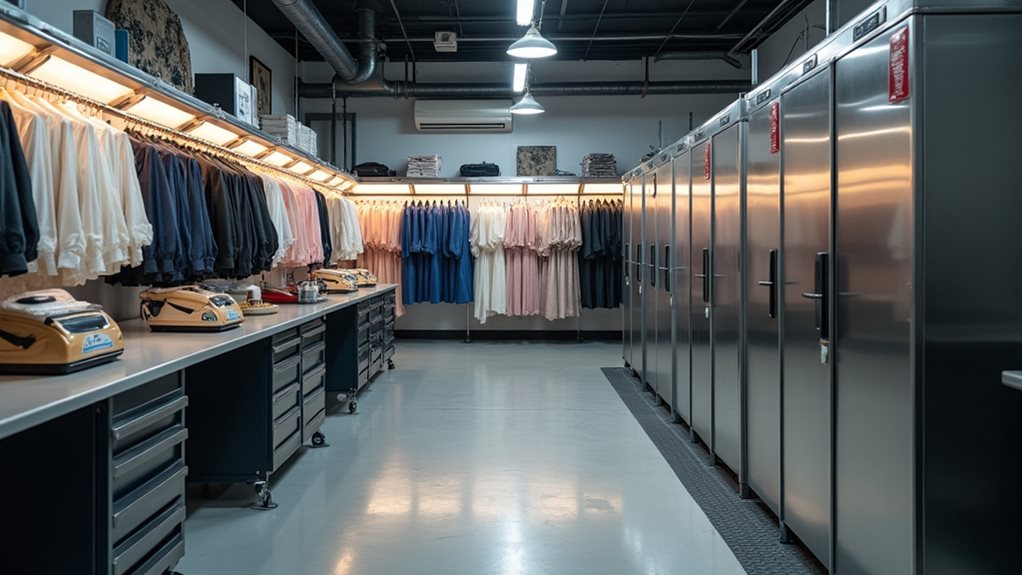
Finding the right dry cleaner can feel like searching for a needle in a haystack, but you’ll want to start by researching what’s available in your neighborhood and reading those brutally honest customer reviews that mention cleanliness and garment freshness.
Once you’ve narrowed down your options, compare their pricing structures and service offerings while asking pointed questions about hidden fees, because nobody likes financial surprises when picking up their favorite blazer.
Finally, you’ll need to evaluate each cleaner’s experience with your specific fabric types, since that silk blouse deserves someone who knows the difference between delicate care and regular cleaning cycles 🧵.
Consider asking potential dry cleaners about their chemical solvents and whether they offer eco-friendly alternatives, as different cleaning methods can impact both your garments and the environment.
Research Local Cleaner Options
When you’re standing in your closet staring at that expensive silk blouse with the mysterious stain, choosing the right dry cleaners becomes more than just convenience—it’s about protecting your investment and your peace of mind.
I’ve learned this lesson the hard way after watching my favorite cashmere sweater shrink into doll clothes 😅.
Here’s how to research your options thoroughly:
- Read online reviews focusing specifically on how different fabrics were handled and customer satisfaction rates.
- Call and ask about their cleaning process and which solvents they use for delicate materials.
- Compare pricing structures upfront, including any sneaky additional fees that might surprise you later.
- Visit in person to assess cleanliness, organization, and whether the staff seems knowledgeable about fabric care.
- Check for professional certifications to ensure the establishment meets industry standards for quality and safety.
Trust me, this legwork saves heartbreak later.
Compare Pricing and Services
After you’ve gathered your list of potential dry cleaners, the real detective work begins with comparing what each one actually charges and offers, because I’ve discovered that a $3 difference per garment can quickly add up to serious money when you’re dealing with a work wardrobe that demands regular professional cleaning.
Don’t only look at base pricing – I learned this the hard way when my “budget-friendly” cleaner started tacking on pressing fees and specialty fabric charges.
Dig into customer reviews that specifically mention garment care quality, not only speed of services. Ask about their experience with your specific fabrics, whether they offer delivery or pickup, and if they provide additional services like minor alterations, because convenience factors can make a pricier option actually more valuable.
Keep in mind that geographic location significantly impacts dry cleaning prices, so what you pay in one area might be considerably different from rates just a few miles away.
Evaluate Experience and Expertise
Because you’re fundamentally trusting someone with your most expensive clothing, you’ll want to dig deeper than surface-level credentials and really understand what kind of expertise your potential dry cleaner brings to the table.
Their experience handling delicate fabrics can make or break your favorite cashmere sweater, and honestly, I’ve learned this lesson the hard way 😅.
Here’s what to investigate about their expertise:
- Fabric specialization – Ask directly about their experience with silk, wool, and other delicate materials.
- Stain removal techniques – Inquire about their approach to different types of stains and success rates.
- Cleanliness standards – Observe their facility’s organization and equipment maintenance.
- Garment quality track record – Request testimonials or examples of challenging restoration projects they’ve completed successfully.
Alternatives to Dry Cleaning for Delicate Garments
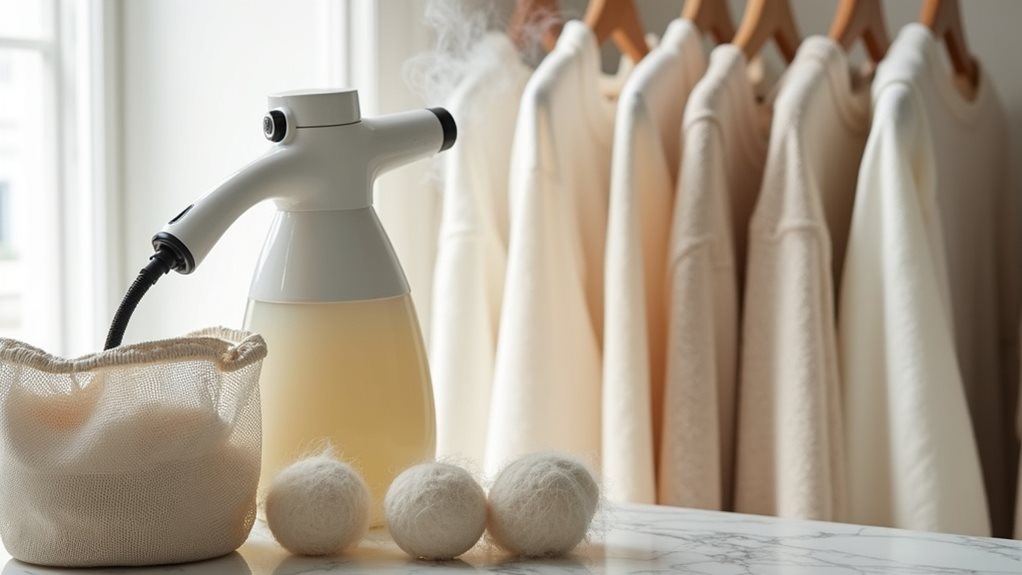
Why spend money on dry cleaning when you can often achieve the same results at home with a little knowledge and patience?
I’ve discovered that hand-washing delicate fabrics like silk, wool, and cashmere in lukewarm water with gentle detergent works beautifully – no expensive trips to the cleaners required.
Before washing silk, scrunch it gently to test if it bounces back to shape; if it does, you’re good to go!
Machine-washing on delicate cycles works surprisingly well for cotton and polyester blends labeled “dry clean only.”
Spot-cleaning specific stains often eliminates the need for full cleaning, and honestly, airing clothes outside on sunny days removes odors naturally.
These simple techniques have saved me hundreds while keeping my favorite pieces looking fresh.
Making the Investment Decision for Your Wardrobe

While home care methods can work wonders for many pieces, determining when to invest in professional dry cleaning requires a strategic approach that considers both your lifestyle and the specific garments in your closet.
Think of it as relationship advice for your wardrobe – some clothing items need that extra TLC to truly shine.
Here’s how to make smart investment decisions:
- Evaluate garment value – If you paid $300+ for that blazer, professional cleaning protects your investment better than risking home care mishaps.
- Consider wear frequency – Weekly-worn pieces deserve professional attention to maintain their polished appearance.
- Assess fabric complexity – Silk blouses and wool suits practically beg for expert handling.
- Factor convenience needs – Busy schedules often justify the time-saving benefits of professional cleaning services.
Your wardrobe deserves strategic care decisions! 💫
